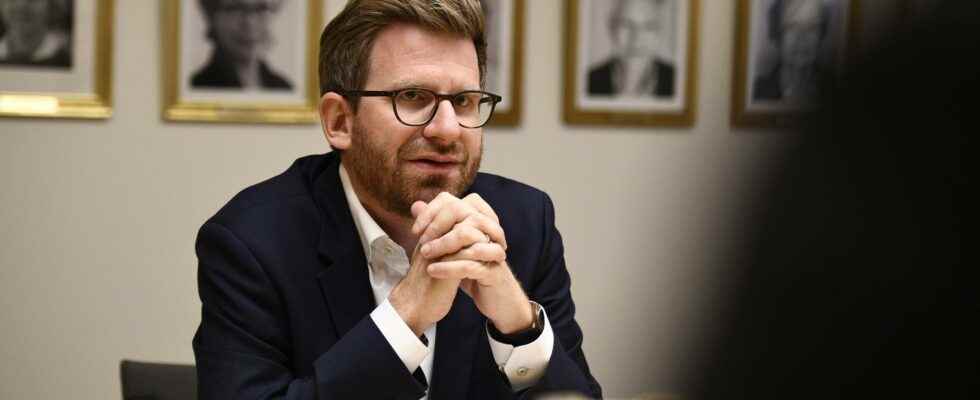Published: Less than 10 min ago
full screen
Next
Martin Schüepp, operational director of the International Committee of the Red Cross (ICRC), on a visit to Sweden.
1 of 2 Photo: Tim Aro/TT
It is approaching a year since Russia’s invasion of Ukraine began. Even if the war were to end shortly, the consequences will reverberate for decades, says Martin Schüepp of the International Committee of the Red Cross.
– They will continue long after the fighting is over, he says.
The situation for the people who remain in Ukraine is incredibly difficult, says Martin Schüepp, operational director of the International Committee of the Red Cross, who recently visited the hard-hit cities of Kherson and Mykolajiv.
Kherson was captured by Russian forces shortly after the Great War against Ukraine began in February. In November, the Ukrainians managed to retake the city, but the attacks from Russia are regular. The continued fighting and the destroyed infrastructure have forced thousands of people to leave Kherson.
– The conditions for many civilians who remain are quite dramatic. The devastation is enormous, says Martin Schüepp.
Not ebbed out
Government, authorities and aid organizations are working to restore critical infrastructure and reach out to those in need. Support from the outside world continues to pour in.
– But the need for help is enormous. It is central that we continue to support those who are most vulnerable and most exposed by this conflict, he says further.
The desire to help the Ukrainian people is great, Martin Schüepp feels. It has not subsided even though the war has now been going on for many months.
– In many crises, you often see a lot of interest at the beginning, but it can also subside quite quickly, he says and adds:
– When it comes to Ukraine, even if I don’t have the whole picture, I feel that there is still strong support for wanting to help.
Long way back
Russia says it does not see a ceasefire as possible at the moment. Kremlin spokesman Dmitry Peskov recently said that a peace deal is “impossible”.
Martin Schüepp prefers not to predict the future. When the war in Ukraine could end is impossible to answer.
– I’m not sitting on a crystal ball. What is certain, however, is that the consequences of the war will continue long after the fighting has ended.
He gives some examples:
– The traumatic effects on mental health are one thing. Many people have also lost an arm or a leg and may need care for the rest of their lives. Many are looking for people who have disappeared, that search can take decades. Ukraine is also an area full of explosives and getting rid of all that will require enormous efforts.
– All of this will have to be dealt with in the future, even if the fighting were to end tomorrow, says Martin Schüepp.
Facts
The situation in Ukraine
Since the outbreak of war in February, around 7.8 million Ukrainians have fled in other European countries (including Russia), according to the UN refugee agency UNHCR.
Around 5.9 million people have been forced to flee within the country.
17.7 million people in Ukraine are estimated to be in urgent need of humanitarian aid.
Ukraine has 44 million inhabitants.
Source: UNHCR
Read more
